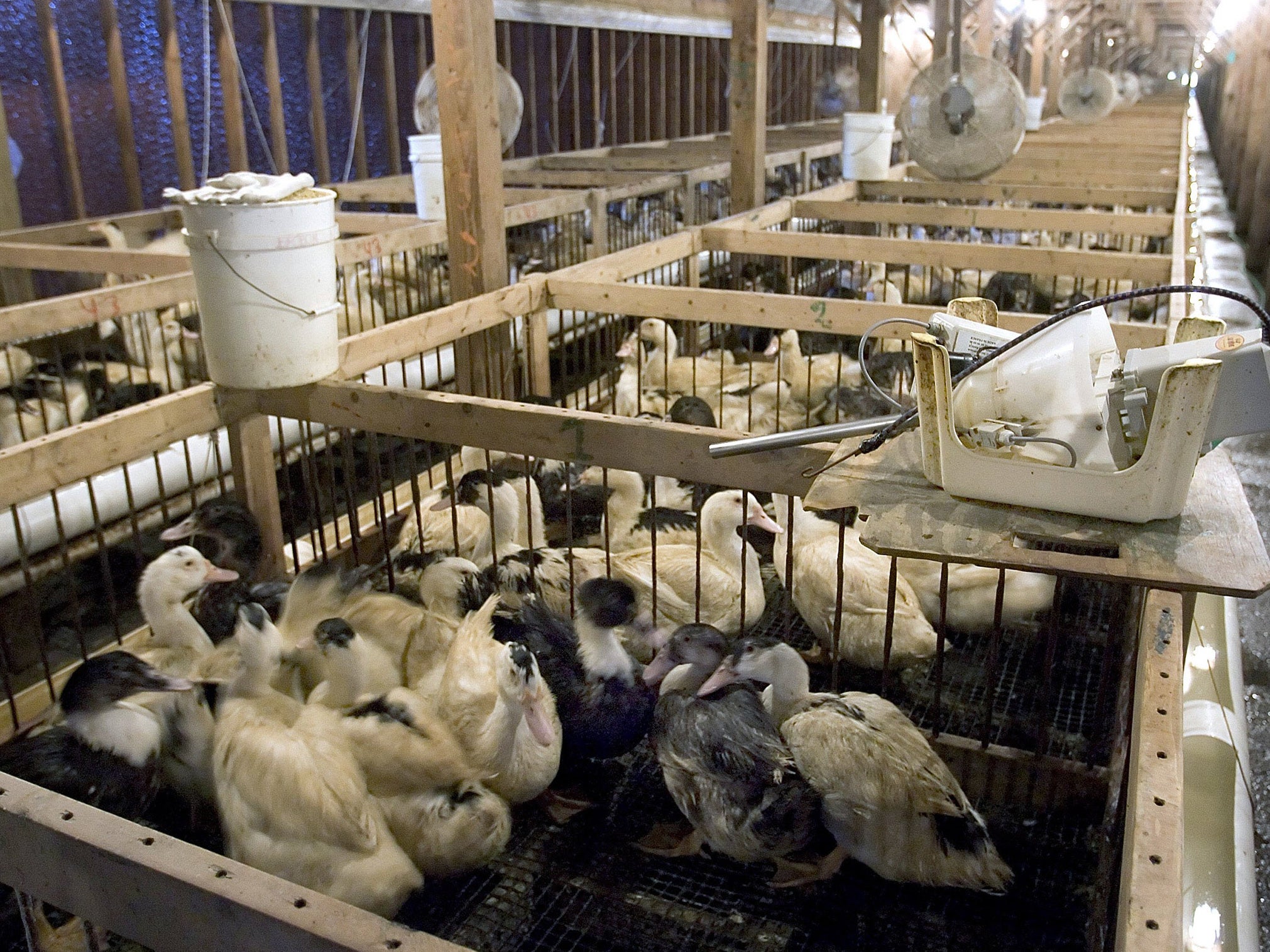Foie gras is a cruel and inhumane product – now Brexit finally offers us the opportunity to ban it
Lawmakers on two continents trying to combat this issue from opposite ends of the production line, but what we need is a complete prohibition


Is anyone really still eating the diseased livers of tormented birds? As people all over the world are pushing for bans on the production and sale of foie gras, it seems the days of this disgusting “torture in a tin” are numbered. Good riddance to vile rubbish, I say!
Foie gras production is so barbaric that it is illegal in the UK – as well as in most parts of Europe. As such, it has the dubious distinction of being one of the few “ingredients” that Brits are banned from making but, paradoxically, permitted to sell, buy, and consume. Across the pond this week, New York officials proposed legislation to ban the sale of foie gras on the grounds of cruelty to animals. Absurdly, if this bill passes, it’ll still be legal to force-feed geese and ducks for the fatty liver within city limits, but the banned pate will have to be sold elsewhere.
It’s a jarring juxtaposition: lawmakers on two continents trying to combat this issue from opposite ends of the production line. But complete prohibitions can – and do – come to pass. Back in 2012, California enacted a groundbreaking ban on both the production and sale of foie gras – legislation that’s also within reach for the UK.
Currently, as the UK is a member of the European single market, which has rules on the free movement of goods, it would be challenging to ban imports of foie gras, which is still produced in France. But Brexit, despite its many uncertainties, will give policymakers the opportunity to acknowledge the public’s distaste for foie gras and fully close our borders to this inhumane and archaic trade. And seize this opportunity they must.
Foie gras production is revoltingly, horrifically cruel – it involves intentionally inducing a painful, debilitating illness in a healthy, young animal. Workers roughly grab weeks-old ducks and geese and shove a metal tube down their throats, through which they force-feed the birds up to 2kg of food every day. This highly stressful process commonly inflicts serious injuries – according to avian-welfare expert Dr Ian Duncan: “The regular insertion of a feeding tube down the esophagus several times a day will inevitably lead to damage of the esophagus.” Eyewitness investigators on foie gras farms have found geese so ill that they could no longer stand up – even at facilities that boast the “highest welfare standards in the world”.
The birds’ livers balloon to up to 10 times their normal size – about the size of a rugby ball. A rugby ball! At this point, many of the birds can barely breathe, and they constantly gasp for air. According to veterinarian Dr Holly Cheever of the Humane Society Veterinary Medical Association, “due to the enormous size of the livers … The birds have no room for their air sacs to fill with oxygen … Analogous to feeling as if one is [being smothered]”.
Of course, we don’t need to wait for foie gras to be banned in the UK to do the right thing by gentle geese and ducks. Indeed, every world-renowned chef with an ethical bone in their body already refuses to serve it. This includes Wolfgang Puck, Albert Roux, and Alexis Gauthier – who, since removing foie gras from the menu of his French restaurant in London’s Soho, has created his own vegan faux gras recipe.
Prince Charles has rightly banned foie gras from royal menus. A number of British institutions – including the Baftas, the Brit Awards, The All England Lawn Tennis & Croquet Club (which hosts the Wimbledon tennis championship), Lord’s cricket ground, and both houses of Parliament – have also introduced policies against serving it, as have two of the UK’s largest catering companies, Compass Group and Brakes. Retailers Selfridges, House of Fraser, Jenners, and Harvey Nichols have all stopped selling it, and many hotels and restaurants across the UK continue to shun it.
Foie gras production and sales must stop now – if not because the law requires it then because it’s the right thing to do. We can all help protect geese and ducks from horrendous abuse by keeping foie gras off our dinner tables and refusing to patronise establishments that continue to sell this shameful, un-British product of torture
Elisa Allen is the director of Peta UK
Join our commenting forum
Join thought-provoking conversations, follow other Independent readers and see their replies
Comments
Bookmark popover
Removed from bookmarks